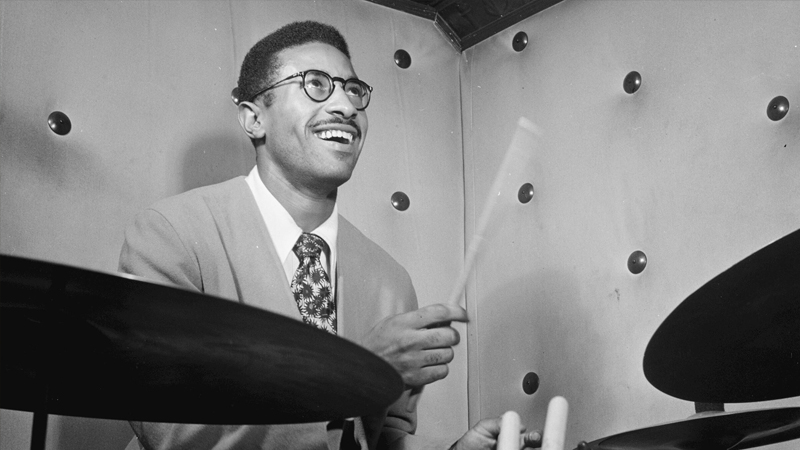Max Roach was a groundbreaking American jazz drummer, composer, and bandleader who left an indelible mark on the world of music. Born on January 10, 1924, in Newland, North Carolina, as Maxwell Lemuel Roach, he would go on to become one of the most influential and innovative drummers in the history of jazz.
Roach’s musical journey began at a young age when he started playing drums in church. His early exposure to gospel music and his natural talent set the stage for his future in the world of jazz. In the 1940s, Roach moved to New York City, where he quickly became part of the burgeoning bebop scene. He joined the band of Dizzy Gillespie and later became a key member of the Charlie Parker Quintet, playing alongside the legendary saxophonist.
Max Roach was not only a master of the drum kit but also a trailblazer in terms of technique and style. He introduced new concepts in rhythm and time-keeping, pushing the boundaries of what was considered traditional in jazz drumming. Roach’s use of polyrhythms and his ability to create complex and dynamic patterns set him apart from his contemporaries.
In the 1950s, Max Roach formed a historic partnership with trumpeter Clifford Brown. The two musicians co-led a quintet that produced some of the most memorable and influential recordings in the history of jazz. Unfortunately, Brown’s life was tragically cut short in a car accident in 1956, but Roach continued to build on their legacy.
Throughout his career, Roach collaborated with a wide array of jazz luminaries, including Duke Ellington, Miles Davis, and Thelonious Monk, among others. His work as a bandleader and composer showcased his versatility and willingness to explore various musical avenues.
In addition to his contributions to jazz, Max Roach was also a socially conscious artist. He used his music as a platform for addressing issues of civil rights and social justice. One of his most notable works in this regard is the iconic album “We Insist! Freedom Now Suite,” released in 1960, which served as a musical protest against racial injustice.
Max Roach’s impact on the world of jazz was not limited to his drumming prowess; he was also an educator and a mentor. He taught at various institutions, including the University of Massachusetts Amherst, where he shared his knowledge and passion for music with future generations of musicians.
Roach’s career spanned several decades, and he continued to perform and record until his passing on August 16, 2007. His legacy lives on through his extensive discography, the musicians he influenced, and the countless drummers who continue to study and be inspired by his groundbreaking contributions to the art of jazz drumming. Max Roach’s innovative spirit and dedication to his craft ensure that he remains an enduring figure in the pantheon of jazz legends.


No responses yet